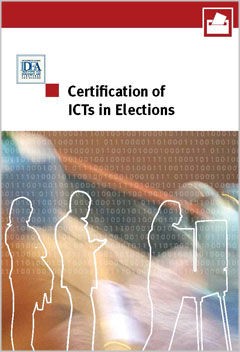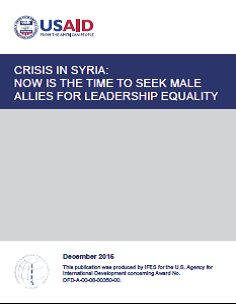Newsletter February 2016

|

Dear Reader, Happy New Year! The February 2016 edition of the ACE Newsletter highlights:
The ACE Electoral Knowledge Network promotes credible and transparent electoral processes with an emphasis on sustainability, professionalism, and trust in the electoral process. ACE offers a wide range of services related to electoral knowledge, assistance, and capacity development. Thank you for reading February's newsletter and for your involvement with ACE. We look forward to your contributions to the Network! Best regards, The ACE Electoral Knowledge Network
Feature: Myanmar’s Historic Electionsby Jonathan Stonestreet, Maura Scully, and Justin Cradit*
In 2015, Myanmar overcame decades of entrenched mistrust between the government, civil society, political parties and voters to host an election leading to a peaceful transition of power. As the new government stands ready to take their seats and tackle the challenges that remain with Myanmar’s transition to democracy, it is worth considering the factors that have facilitated this change. From 1962 to 2011, Myanmar was ruled by military regimes. Prior to 2015, the country held only two multi-party national elections (in 1990 and 2010)—neither of which resulted in a transfer of power to a genuine civilian government. The 2010 election was the result of a seven step roadmap to transition to democracy issued in 2003. This roadmap included establishing the 2008 Constitution, which, while an important step towards democracy, maintained 25 percent of parliamentary seats for the military (giving the military veto power over constitutional reform), kept key ministries under the control of the military, and effectively barred opposition leader Aung San Sui Kyi from becoming president due to her family’s citizenship status. The 2010 elections resulted in a transfer of power to a nominally civilian government, but the Union Solidarity and Development Party (USDP), a party composed of former military generals, won a majority in both chambers of parliament. The main opposition party, the National League for Democracy (NLD), led by Aung San Suu Kyi, boycotted the election. Though more credible by-elections were held in 2012, doubts lingered over whether the military and the USDP-led government would permit credible elections in 2015. The international and domestic community were concerned about whether a credible election could be held given the legal limitations set out in the 2008 Constitution, the challenges facing the administration of the elections and the potential for disenfranchisement. Read the full article here ... Practitioners' Network Updates
Consolidated replies are published summaries of the discussions on the Practitioners' Network. The following are some of the consolidated replies published since September. Dozens of questions have been consolidated, so be sure to look here for a full overview.
ACE Encyclopaedia: The Latest UpdatesACE recently completed an update of the Voter Registration Encyclopaedia topic area in Spanish and published a Focus On series about Campaign Finance by Barbara Jouan. ACE also published the following case studies:
If you would like to see a particular topic addressed in an ACE Focus On, or in Spanish or French, please send your suggestions to [email protected]. Recent Publications by ACE Partners and Members of the Practitioners' Network
Certification of ICTs for use in elections is often seen as an option for EMBs seeking to provide this assurance that a technical solution fulfills legislated requirements, is secure and trustworthy, is of high quality, and will perform as expected. However, certification practice varies greatly between countries and EMBs. Some do not conduct any kind of certification, while others use very distinct processes with vast differences in scope. Certification terminology is also badly defined and applied inconsistently. Moreover, as there is currently no global technical standard for the various ICTs used in electoral processes, it is usually up to the individual EMB to develop requirements for the certification process and assure compliance. This publication provides guidance on what the certification of ICTs for elections can and cannot achieve, outlines the relationship between the legal and technical requirements for certification, and presents a quality-assurance framework that summarizes best practices for planning and implementing certification. Men and women in Syria point to the critical role of women during the revolution and their actions that supported the movement. So while both men and women acknowledge the importance of women’s role in the revolution, why doesn’t this translate to a greater role in leadership and decision-making in Syria’s political transition and in Syrian society? Responding to and finding ways to alleviate this concern will be critical to the success of alliances between men and women in the resolution of Syria’s conflict by showing them that gender equality is important for everyone and important for peace. Under the USAID funded Global Women’s Leadership program, IFES set out to address this question directly with men and women in Gaziantep and Kilis, Turkey as they seek solutions to the crisis. IFES’ report “Crisis in Syria: Now is the Time to Seek Male Allies for Leadership Equality” analyzes the outcomes and provides recommendations from this mission.
|

|



